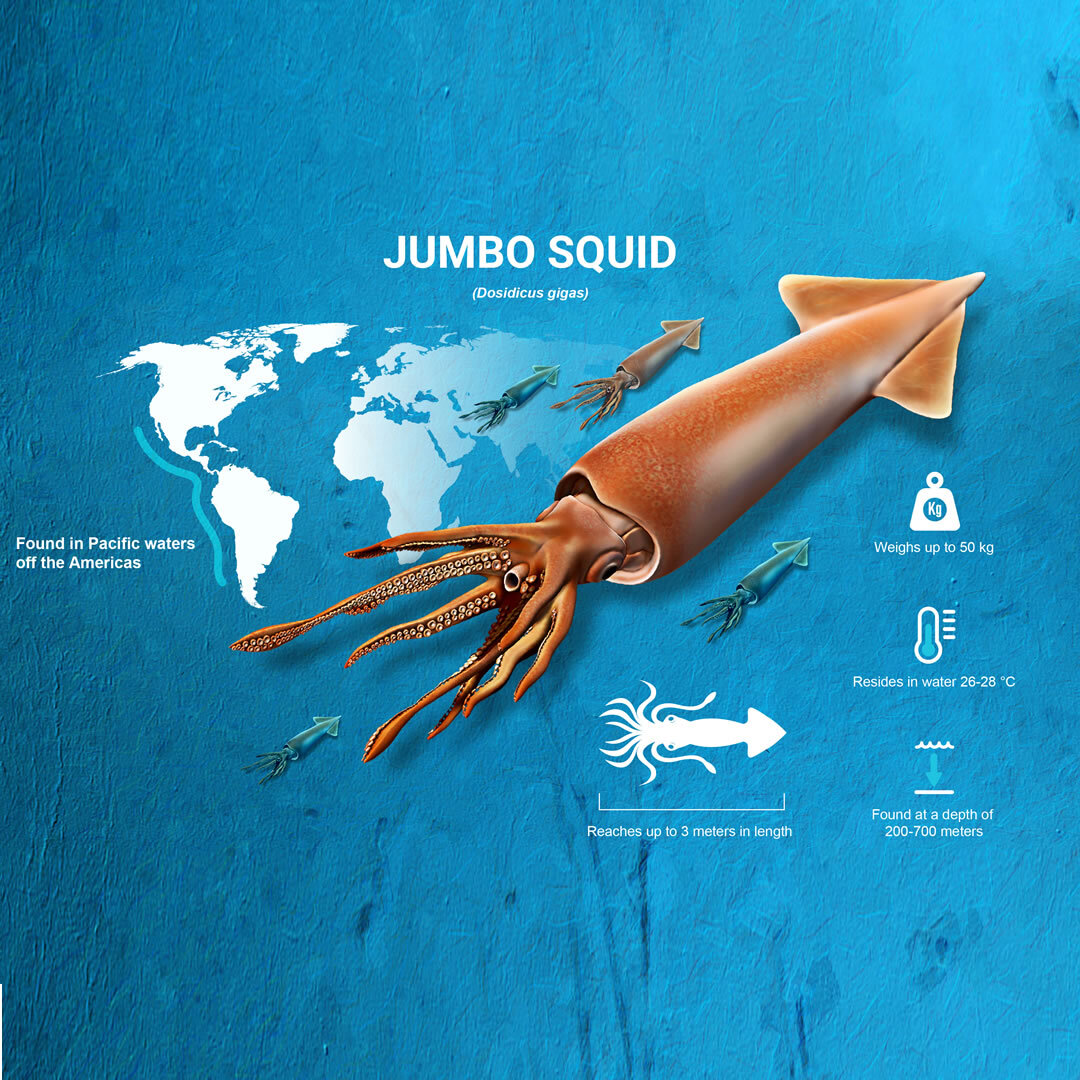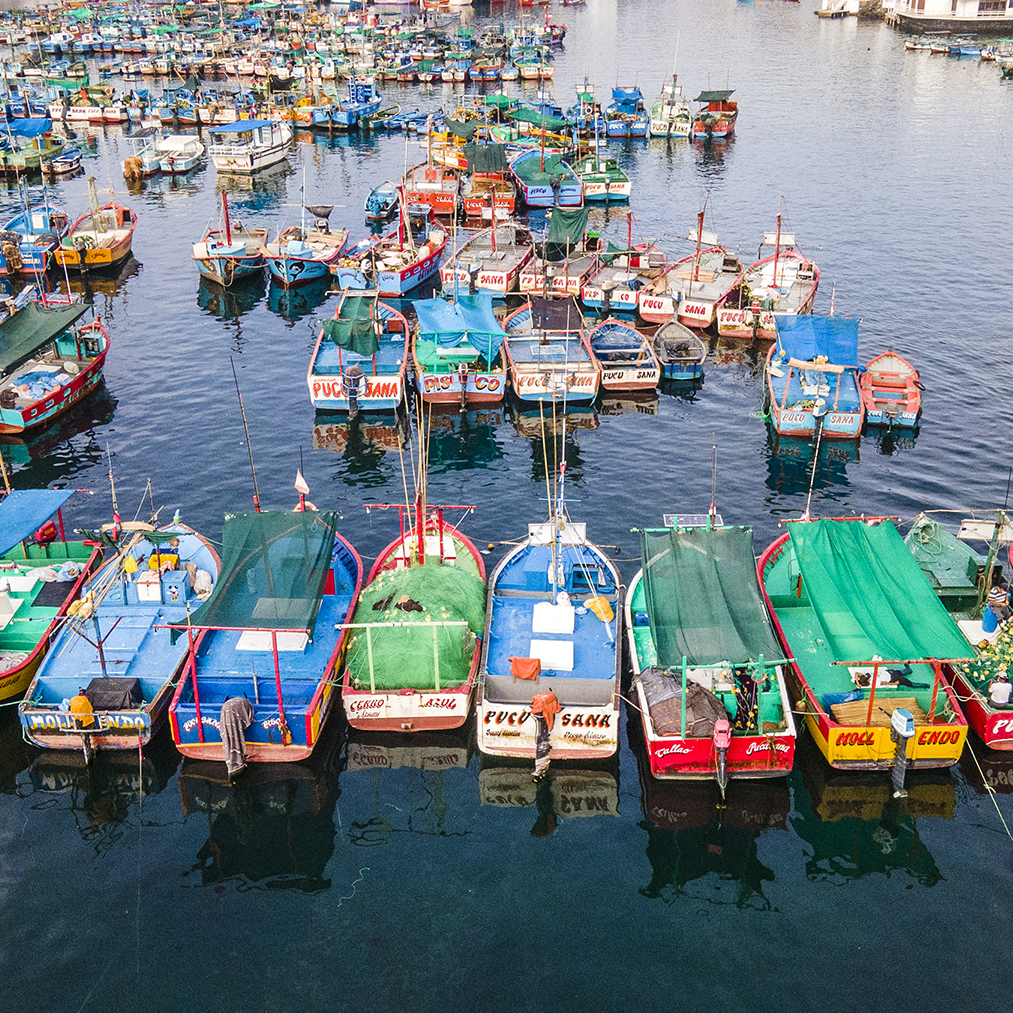Latin America
Latin America is a region intertwined with the ocean. With more than 35,000 miles (56,000 kilometers) of coastline, it is no surprise that its communities, economies and cultural identities are intrinsically linked to the sea.
Positioned across the Atlantic and Pacific Oceans, Latin America’s surrounding waters are habitats for economically important fisheries such as anchovy, salmon and squid. These rich fishing grounds provide the rest of the world with a significant amount of seafood—approximately 11 percent of the world’s fishery and aquaculture production comes from the region—with Peru and Chile both listed in the top ten of the world’s capture producers. But these fish stocks are threatened by illegal, unreported and unregulated fishing, which is a serious problem for many countries in the region and accounting for up to $23.5 billion annually.
Global Fishing Watch is working with partner countries across Latin America to create a more complete understanding of fishing activity taking place throughout their waters. Using the power of satellite technology and cutting-edge machine learning, our visualization and analysis tools are helping governments and maritime security agencies strengthen maritime control and surveillance and meet sustainability goals.
Our data-sharing initiative is at the heart of our work in Latin America as we encourage countries to join leaders in the region—Belize, Brazil, Chile, Costa Rica, Ecuador, Panama and Peru—to publish their vessel monitoring system data on the Global Fishing Watch map. Making vessel activity publicly trackable is a critical step to achieving greater transparency in fisheries. When countries share their vessel data—industrial or small-scale—we can create a more accurate and connected picture of global fishing activity.
Located throughout the region, our team of experts use big data processing and machine learning to provide partner governments with analysis reports, fisheries monitoring tools and staff training to help authorities use and benefit from our technology.
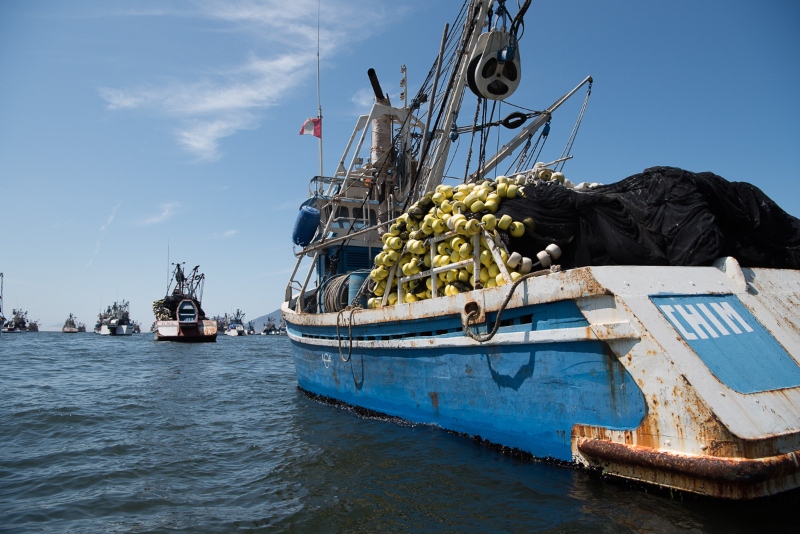 When the fishing season for Peruvian anchovy begins, purse seiner vessels leave port to go fish for the tiny blue fish. © Juan Carlos Sueiro
When the fishing season for Peruvian anchovy begins, purse seiner vessels leave port to go fish for the tiny blue fish. © Juan Carlos Sueiro
The Search for Squid
The waters off South America are home to one of the most lucrative fisheries: the jumbo squid. Sustainable management of squid fisheries depends on effective vessel monitoring. Global Fishing Watch uses cutting-edge technology to analyze this fishery and enhance monitoring, control and surveillance efforts in the region.
Transparency in Focus
Thanks to the commitment and combined support from government champions, industry leaders and academia, in just a few years, data transparency has become the gold standard across fisheries in one of the most productive and biodiverse waters in the world: Peru. Discover more in our new project Transparency in Focus.
By embracing transparency, nations have a more cost-effective way of monitoring vessels and enhancing maritime domain awareness.
Recent work
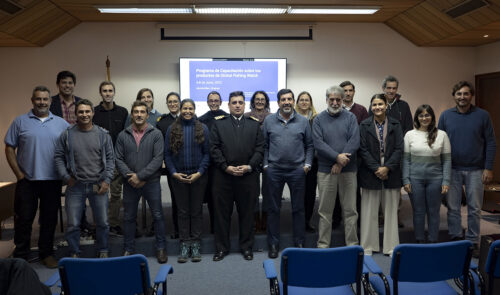
In Latin America, Training Helps Governments to Discover Suspicious Behavior
Global Fishing Watch reinstates in-person training with partners to strengthen the use of technology in support of responsible ocean management Lack of available information on global and regional fishing activity is one of the biggest
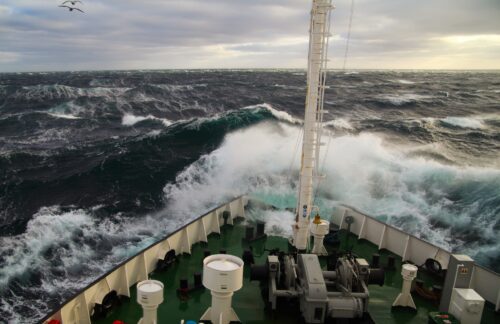
Mapping a New World
Tony Long, Global Fishing Watch’s chief executive officer, finds cause for gravity but also hope as we look to the Decade of Ocean Science and a growing consensus that our future—and the course ahead for
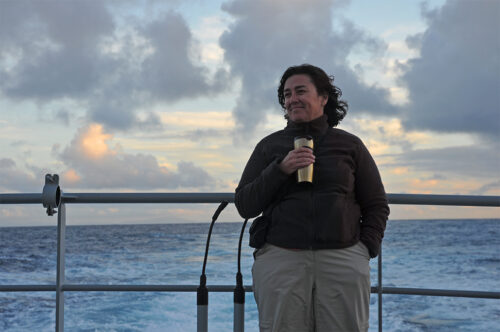
Asia-Pacific Economic Cooperation is a Powerful Forum for Boosting Transparency to Combat Illegal, Unreported and Unregulated Fishing
APEC members share marine resources across a single ocean basin. Ensuring sustainable exploitation and trade is a shared concern. The Asia-Pacific Economic Cooperation, or APEC, is an intergovernmental forum for 21 member economies in the
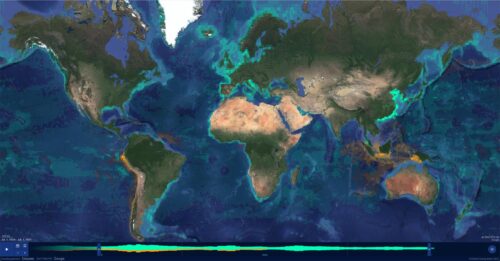
New Map Revolutionizes Ocean Monitoring and Analysis
To better visualize activity at sea, Global Fishing Watch engineers new technology to power updated map Despite its overwhelming benefits and the value it brings to all life on Earth, the ocean remains one of
